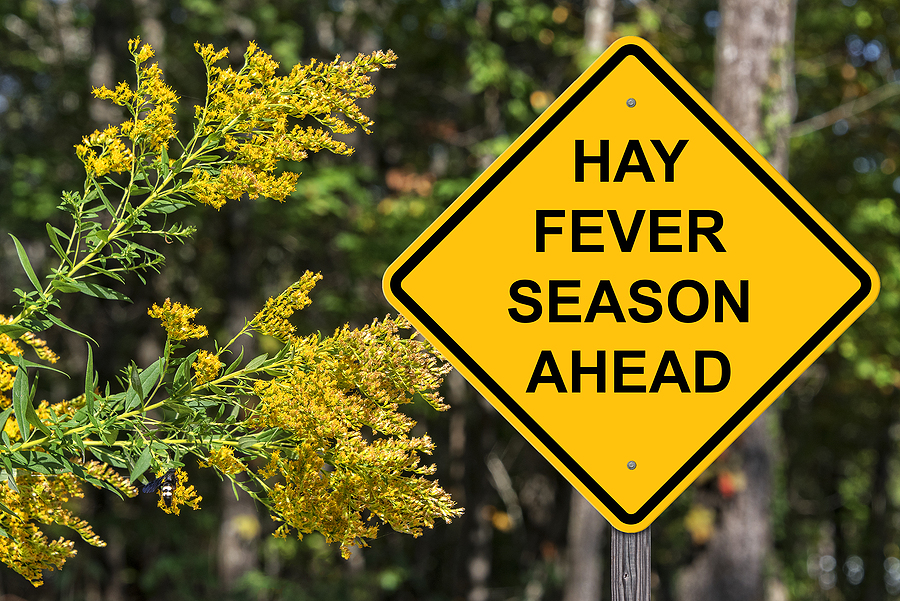Top tips for hay fever sufferers
Spring, although longed for by many, is a mixed blessing for others. As hand in hand with the change of season comes pollen.
Pollen is the male fertilising agent of flowering trees, plants, grasses and weeds and is usually in the form of a very fine powder. Many people have an adverse immune reaction when they breathe in pollen, this is what is commonly known as hay fever.
Pollen contains proteins that can cause the eyes, throat and sinuses to become irritated and inflamed, so common hay fever symptoms are a runny, itchy and/or blocked nose, sneezing and itchy eyes
Who does hay fever affect?
Hay fever is an allergy to pollen that affects around 1 in 5 people and as such is one of the most common allergies in the UK.
Usually beginning in childhood, hay fever can affect all ages. You are more likely to suffer from hay fever if you have a family history of allergies, especially asthma or eczema. More boys tend to be affected than girls but it seems to equal out with age.
Hay fever symptoms completely disappear for 10 to 20% of sufferers as they get older.
When is the UK hay fever season?
Hay fever is usually worse between late March and September, especially when it’s warm, humid and windy. This is when the pollen count is at its highest and is when the majority of people will suffer.
However, severe sufferers may struggle all year round. This is known as perennial rhinitis.
Every person is different and will react to different types of pollen so when you suffer depends on the type of pollen you are allergic to.
When is specific pollen released?
Late March to mid-May – tree pollen is released
Mid-May to July – grass pollen and flower pollen is high
Late June to September – weed pollen is at its most potent
What are hay fever symptoms?
Hay fever symptoms include:
- Red eyes that may be watery and/or itchy
- Runny nose
- An itchy nose, roof of mouth or throat
- Sneezing
- Coughing
- The feeling of mucus constantly running down the back of the throat
- tiredness
Top tip for sufferers
There is no cure for hay fever but there are some precautions that you can take to avoid exposure to pollen and some treatments that may help to alleviate symptoms:
- Wash it off – a shower and a change of clothes after being outside will help to remove pollen from your body and hair
- Wrap-around sunglasses – these are useful to stop pollen from getting into your eyes
- Keep an eye on the pollen count – weather forecasts these days include pollen counts, so if they are especially high then take care to spend more time indoors and keep your windows and doors shut
- Stay away from animals – especially on days with a high pollen count. Our pets can carry pollen on their fur so wash them regularly, especially before they come in the house
- Keep the washing indoors – pollen collects on clothes so avoid drying your washing outside when there a high pollen count is forecast
- Create a barrier – protect your nostrils and trap pollen grains by applying a small amount of petroleum gel (Vaseline)
- Gardening – avoid spending time in the garden when the pollen count is high and stay away from wind-pollinated plants such as sunflowers, dahlias and ragweed
- Stay by the coast – sea air blows pollen in-land so pollen counts are generally lower by the sea
- Over the counter antihistamines will help to prevent an allergic reaction and steroid nasal sprays can reduce inflammation and swelling.
If symptoms are extreme or persistent then a visit to your GP is recommended as they can discuss further options.
Immunotherapy may be recommended as an option; this requires exposure to small amounts of pollen over a period of 3 years to build resistance, but in most cases, hay fever can be controlled by making behavioural changes and by taking over the counter medication.
Disclaimer
All content on Silversurfers.com is provided for general information only, and should not be treated at all as a substitute for the medical advice of your own doctor or any other health care professional. Silversurfers will not be responsible or liable for any diagnosis made by a user based on the content on www.silversurfers.com and we are also not liable for the content of any external websites or links from or to Silversurfers to any other websites. Please always consult your own doctor if you’re in any way concerned about any aspect of your health.
Melina - Assistant Editor
Latest posts by Melina - Assistant Editor (see all)
- Banana bread with SunGold kiwis - February 20, 2025
- A tribute to Bob Marley - February 4, 2025
- Going to Work on an Egg! - January 29, 2025
- The Very Best of Petula Clark - January 14, 2025
- 50 Years of Coat Trends - January 12, 2025




















